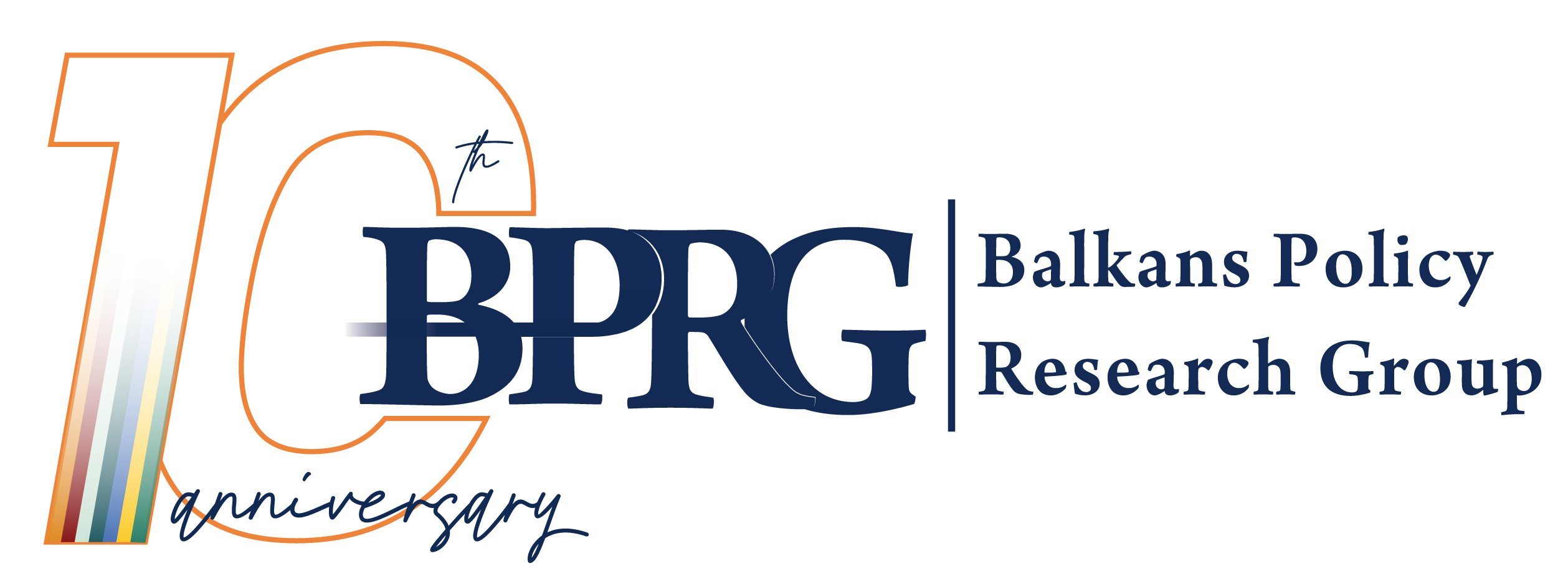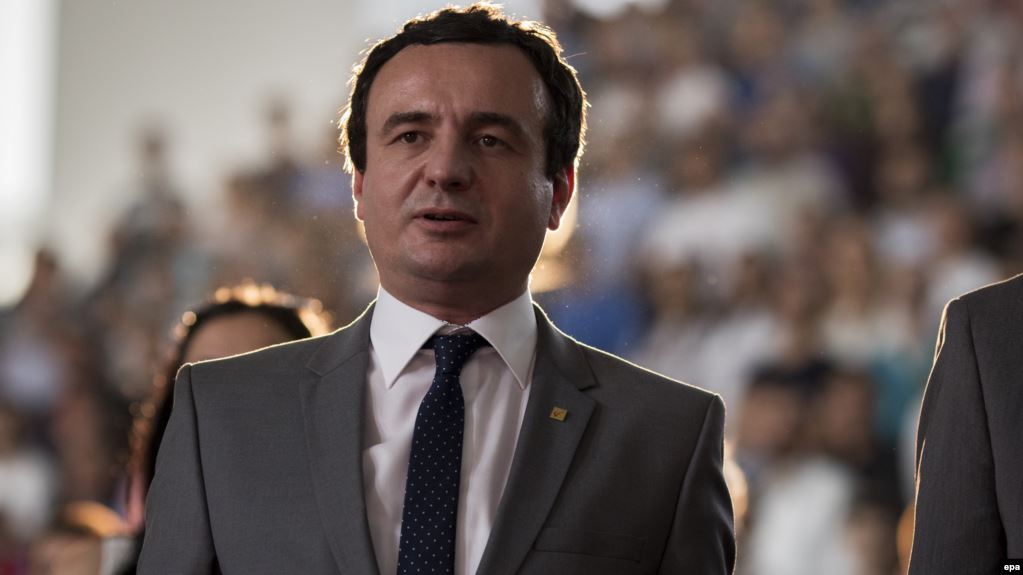Kosovo’s political war wing may have won the fight in recent parliamentary elections, but the rise of the Vetevendosje party may be a sign it has lost the battle.
Voters in the June 11 poll showed their frustration over a lack of economic progress and a deep level of corruption by punishing the country’s main parties, which they feel have failed to make progress on issues such as an unemployment rate that hovers at around 30 percent in one of Europe’s poorest countries.
A coalition of the Democratic Party of Kosovo (PDK) (which President Hashim Thaci used to lead before resigning to become head of state), the Alliance for the Future of Kosovo, and the Initiative for Kosovo took 34 percent of the ballots cast.
All of the parties are led by former members of the Kosovo Liberation Army, which led the guerilla insurgency against Serbian forces in the late 1990s in a war where an estimated 10,800 Kosovar Albanians and some 2,200 Serbs were either killed or disappeared.
Vetevendosje, a leftist political movement that translates as Self-Determination Movement, was a surprising second-place finisher with 27 percent — more than double its showing in the last elections in 2014 — making it the largest single party in the next parliament.
Both sides celebrated deep into the night after the election results were announced, fittingly at opposite ends of a pedestrian street in the heart of Kosovo’s capital, Pristina.
But analysts say PDK is unlikely to find enough support elsewhere in the legislature to cobble together a government, while Vetevendosje has taken its result as a mandate for it to form a cabinet to lead the country.
“Politics and government have caused many divisions and disunity among the people of Kosovo. We are interested in healing and closing these open wounds of the citizens,” party leader Albin Kurti told RFE/RL in an interview on June 15.
“And this union should be a union for change — unity for the good of our country,” the 42-year-old politician added. “And we are convinced that we should be leading this charge.”
Voting For Change
Though it has been somewhat of a party on the fringe since being established in 2005, Vetevendosje is anything but an unknown quantity in Kosovo.
Amid struggles caused by the uncontrolled privatization of public enterprises, economic stagnation, and simmering tensions with Belgrade and ethnic Serbs upset with Kosovo’s declaration of independence from Serbia in 2008, the party set itself up as the voice of autonomous social and economic justice.
“There was a massive youth vote for Vetevendosje who see some hope and who want to see some policy changes,” says Naim Rashiti, head of the Balkans policy research group in Kosovo.
The party seems willing to oblige.
It has railed against perceptions of deep-rooted corruption, striking a chord with voters who had tired of the country’s carousel of political leaders comprised of alleged war crimes suspects and internationally appointed administrators.
In the anticorruption watchdog Transparency International’s 2016 Corruptions Perception Index, Kosovo ranked 95th out of 176 countries listed worldwide and was near the bottom in Europe, scoring higher than only Ukraine, Moldova, and Russia.
“I voted for Vetevendosje because they had a concrete plan and they will stick to their principles, which they had before the campaign and will keep after the campaign,” says Burbuqe Morina, a 40-year-old sociologist in Pristina.
“The difference between them and the rest is that they are correct, loyal, and the party members are not corrupt.”
Maybe more importantly, Vetevendosje became a symbol of opposition to the status quo through its disruptive actions in the previous parliament.
Its supporters at one time released tear gas inside parliament and threw firebombs outside it to protest the deals with Montenegro and Serbia, issues that toppled the previous government to spark the snap elections earlier this month.
Kosovo declared independence without Serbia’s consent and Belgrade and Moscow have yet to recognize it as a separate country. The United States and most Western states are among the more than 100 countries that recognize Kosovo’s independence.
‘No Negotiations’
The election results are “hardly surprising, given Vetevendosje is the only voice that does not represent the largely unaccountable, incompetent, and often predatory politico-economic elite that has dominated Kosovo for the past two decades,” political analyst and author Andrea Capussela says.
Capussela adds that while the party’s practices do have “clear nationalist overtones,” its administration of Kosovo’s capital, which it has governed since 2013, “seems to have been relatively competent and transparent.”
While many leaders of the PDK-led coalition are associated with the so-called war camp, Kurti has evolved into somewhat of a hero of the peace movement in Kosovo.
He was imprisoned by the Serbian regime during the war. After he was released, he returned to politics to tackle what he saw as the long-standing political and economic problems of postwar Kosovo.
Vetevendosje has also pushed a platform of excluding the involvement of the European Union or other unelected international consultants in deciding the future of the people of Kosovo.
This attracted voters given the biggest issues surrounding the vote were a pair of agreements signed in 2015 — one setting the border with Montenegro and another with Serbia that increases powers held by ethnic Serbs in Kosovo.
Those issues have helped stall reforms in the legislature and angered the electorate in a country where about one-third of the population is under the age of 15.
“Vetevendosje must address the economic destitution of Kosovo created by years of market reforms and privatization of public wealth, deteriorating educational infrastructure, and social and medical services that have performed worse than the parallel underground institutions that existed under Serbian rule,” analyst Piro Rexhepi wrote in a June 12 opinion piece in The Guardian newspaper.
He added that Vetevendosje must change its approach to negotiations with Serbia and the EU, in which Kosovo has been treated not as the victim of Serbian state violence but as the perpetrator.
“Sticking to its slogan of ‘No negotiations’ without acknowledgments of the Serbian state’s war crimes in Kosovo is important, not only for Kosovo but for all past and ongoing state-sponsored crimes that are silenced through the politics of ‘reconciliation,'” he wrote.
Source: https://www.rferl.org/a/kosovo-vetevendosje-capitalizes-on-desire-for-change/28559391.html

